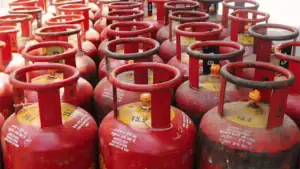Islamabad, 27 May 2025: OMC Margins have once again taken centre stage as Pakistan’s oil industry has urged the government to revise the profit margin on petroleum sales, proposing an increase from the current Rs. 7.87 to Rs. 10 per litre a rise of over 27 percent.
Revised Proposal Reflects Financial Strain
The Oil Companies Advisory Council (OCAC), in a formal letter addressed to the Federal Minister for Petroleum, has renewed its request for an upward revision in margins for oil marketing companies.
According to the OCAC, the latest demand is a scaled-down version of a previous recommendation made in June 2024, where a margin of Rs. 12.65 per litre had been suggested.
That earlier figure, the council stated, was calculated based on actual business costs, including the financial burden of maintaining a 20-day fuel reserve, turnover taxes, inventory losses, demurrage charges, and outstanding General Sales Tax (GST) liabilities up until mid-2024.
Call for Immediate Approval and Legislative Action
After consultations with the Petroleum Division and the Oil and Gas Regulatory Authority (OGRA), the industry revised its proposal to Rs. 10 per litre.
READ MORE: Oil Industry to Invest $5 Billion in Exploring Drilling Sites in Pakistan
Alongside the margin adjustment, it requested that demurrage charges and unadjusted GST be reimbursed through the Inland Freight Equalisation Margin (IFEM).
Although the Economic Coordination Committee had previously greenlit the recovery of GST through IFEM, the OCAC noted that the requested increase in OMC Margins remained unaddressed.
The council warned that continued delays in approving the revised rate could lead to further economic stress within the downstream petroleum sector.
It also appealed for the GST exemption to be officially included in the Finance Bill for 2025, suggesting that both the margin adjustment and tax relief are vital steps toward financial stability and ensuring that petroleum products remain readily available across the country.
READ MORE: Pakistani Olive Oil Wins Global Top Award
Industry representatives emphasised that rising operational expenses and unresolved tax issues have made it difficult for companies to sustain fuel distribution efficiently.
They insisted that higher OMC Margins are no longer a preference but a necessity to safeguard against supply chain disruptions and potential losses.
With fuel supply being critical to national infrastructure and economic continuity, the oil marketing sector awaits swift government action on its proposals, urging policymakers to align commercial returns with the real cost of doing business.









